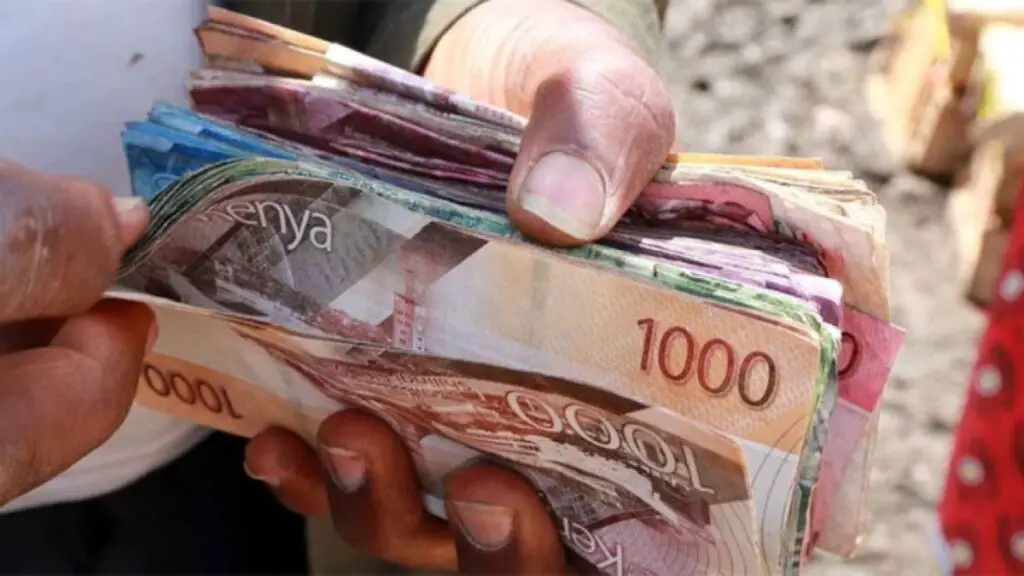- The Central Bank of Kenya says tea exports posted a 13 percent year-on-year increase.
- As for the direction of trade, imports from China accounted for 21 percent of Kenya’s total imports.
- Goods exported to Africa in the fourth quarter of 2022 amounted to USD 729 million or 41 percent of the total exports.
Kenya’s current account balance has narrowed to $966 million due to the increase in remittances sent by Kenyans living abroad and a renewed demand for tea from traditional markets the Country’s Central Bank has said.
This figure represents a decline from the previous quarter’s balance of $1,557 million that was reported at the end of 2021.
The current account balance is a crucial component of the country’s overall financial inflow and outflow record, forming part of the balance of payments, which reflects all transactions made by Kenya with its trading partners.
Growth in exports of key goods
The CBK attributes this reduction in the current account balance to the robust performance of export of goods and services, along with the rise in remittances from Kenyans abroad. This positive trend is highlighted in the CBK Quarterly Economic Review.
Furthermore, the report reveals that the country’s trade deficit also saw improvement, narrowing by 23 per cent. Specifically, the deficit decreased from $3,357 million in the last quarter of 2021 to $2,572 million by the end of the fourth quarter of 2022.
“Despite a fall in horticulture receipts, the value of merchandise exports increased to USD 1,762 million in the fourth quarter of 2022 from $1,708 million in the same period in 2021, owing mostly to increased earnings from tea, chemicals, and manufactured products,” CBK said in the report.
During the review period, tea exports witnessed a 13 percent year-on-year increase, fueled by rising demand from Kenya’s traditional markets. Additionally, exports of manufactured goods saw a notable growth of 16 per cent. However, earnings from horticulture faced a decline of 17 per cent.
Also Read: Unlimit-CBK partnership expands presence in Africas fintech industry
Value of imports decline
The value of merchandise imports decreased by 14 percent, amounting to $4,334 million, down from $5,065 million in the previous year. This decline was mainly attributed to reduced imports of machinery and transport equipment. Nevertheless, imports of petroleum products remained high due to elevated international crude oil prices.
On the services account, net receipts recorded a decline of $240 million, reaching $280 million, compared to the third quarter, which saw $520 million. However, the opening up of the skies resulted in an improvement in receipts from travel, amounting to $42 million due to continued international travel.
The primary account balance, representing the difference between the government’s revenue collection and its spending on public goods and services, widened by $16 million.
Consequently, the deficit reached $420 million in the fourth quarter of 2022, compared to $404 million in the same period the previous year, primarily driven by dividend payments on portfolio investments.
The CBK report further shows that secondary income balance rose by $62 billion. At the same time, remittances experienced a three percent increase, reaching $1,047 million in the fourth quarter of 2022, up from $1,015 million the previous year.
CBK’s global market outlook
As for the direction of trade, imports from China accounted for 21 percent of Kenya’s total imports. This makes China the largest single source of imports, despite experiencing a 17 percent decrease in the fourth quarter of 2022 compared to the same quarter in 2021.
Conversely, imports from the UAE rose by $470 million, while imports from Africa declined by $61 million to $508 million in the fourth quarter of 2022, reflecting reduced imports from Egypt.
Regarding exports, goods exported to Africa in the fourth quarter of 2022 amounted to USD 729 million, representing 41 percent of the total exports.
However, exports to the EAC region fell, mainly due to reduced exports to Rwanda, Uganda, and Tanzania. The share of exports to the EU stood at 20 percent, while exports to the Netherlands, the United Kingdom, the United States, and Pakistan accounted for 9 percent, 5 percent, 8 percent, and 8 percent, respectively.
